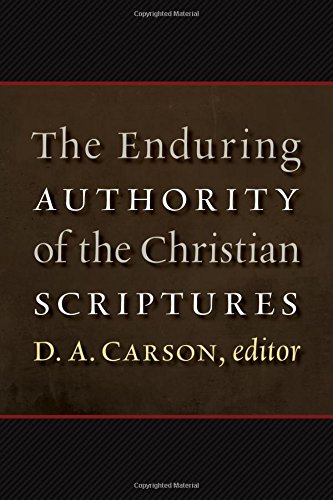A Brief Book Summary from Books At a Glance
Editor’s Note: Today we continue our series of “bonus” summaries covering all thirty-six chapters of the monumental volume, The Enduring Authority of the Christian Scriptures (D.A. Carson, ed.).
Chapter 27: Authority and Truth
by Michael Rae
(Summarized by Mark Coppenger)
In the closing paragraph, Rae says, “[I]t is a mistake to treat the topic of biblical authority as somehow lying at the heart of debates about the reliability and inerrancy of scripture.” He faults the Chicago Statement on Biblical Inerrancy (which he calls the “go-to document for an ‘official’ statement on the doctrine”) for smuggling unwarranted commitments in with its central definition. Using some hedge language (“This comes pretty close to the claim”; “I am not so sure that”; “I am inclined to think”), he says, for instance, that it’s a stretch to say that the Great Commission applies to today’s Christians as well as to the apostles. Otherwise, we would have to say that “a command to ‘Stop!’ is one of a policeman’s teachings.”
He works analytically through a host of distinctions and qualifications to drive a wedge between assertions of authority and truth: “theoretical” v. “practical” authority; “communicator” v. “product of a communicative act”; “justifiers” v. “motivators”; “the defeated” v. “the defeater”; “de facto” v. “de jure” authority; “realist” v. “anti-realist” conceptions of truth; “theological realism” as a “species of metaphysical realism”; “semantic content” v. “what the speaker or author means.” Thus he tracks through. . .
[To continue reading this summary, please see below....]The remainder of this article is premium content. Become a member to continue reading.
Already have an account? Sign In
